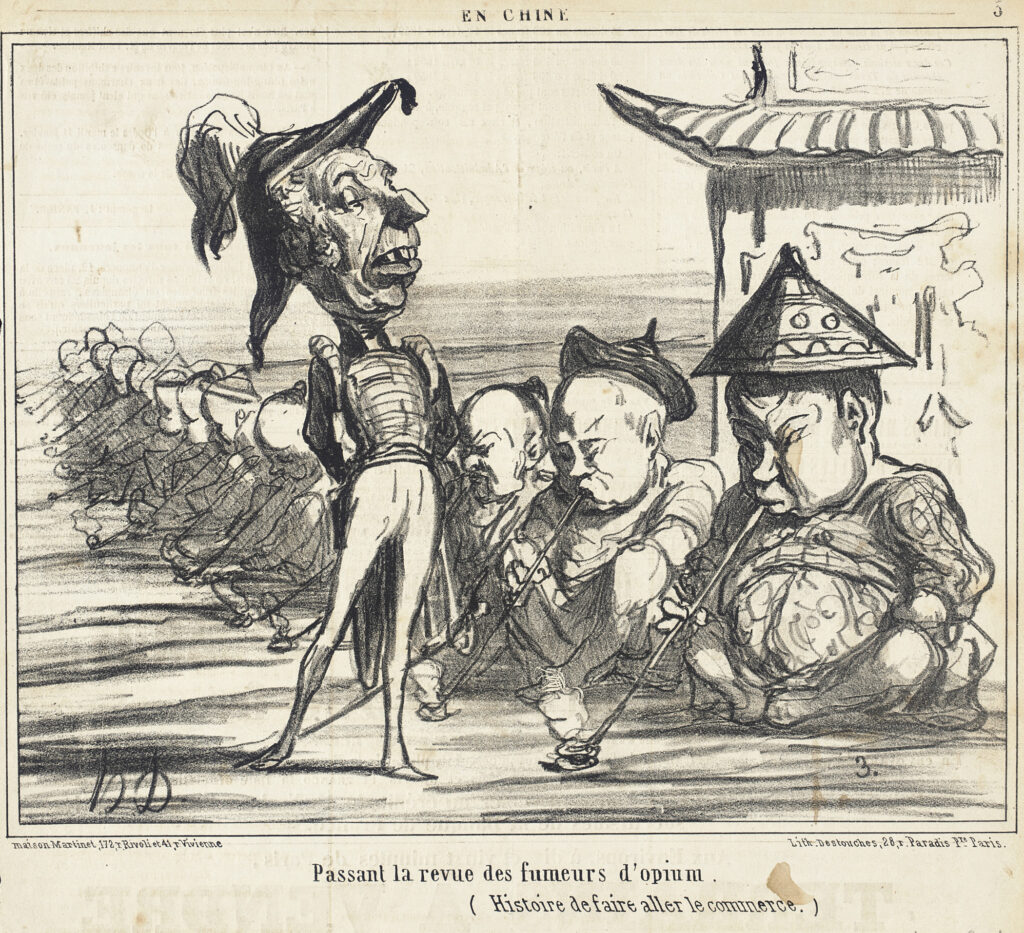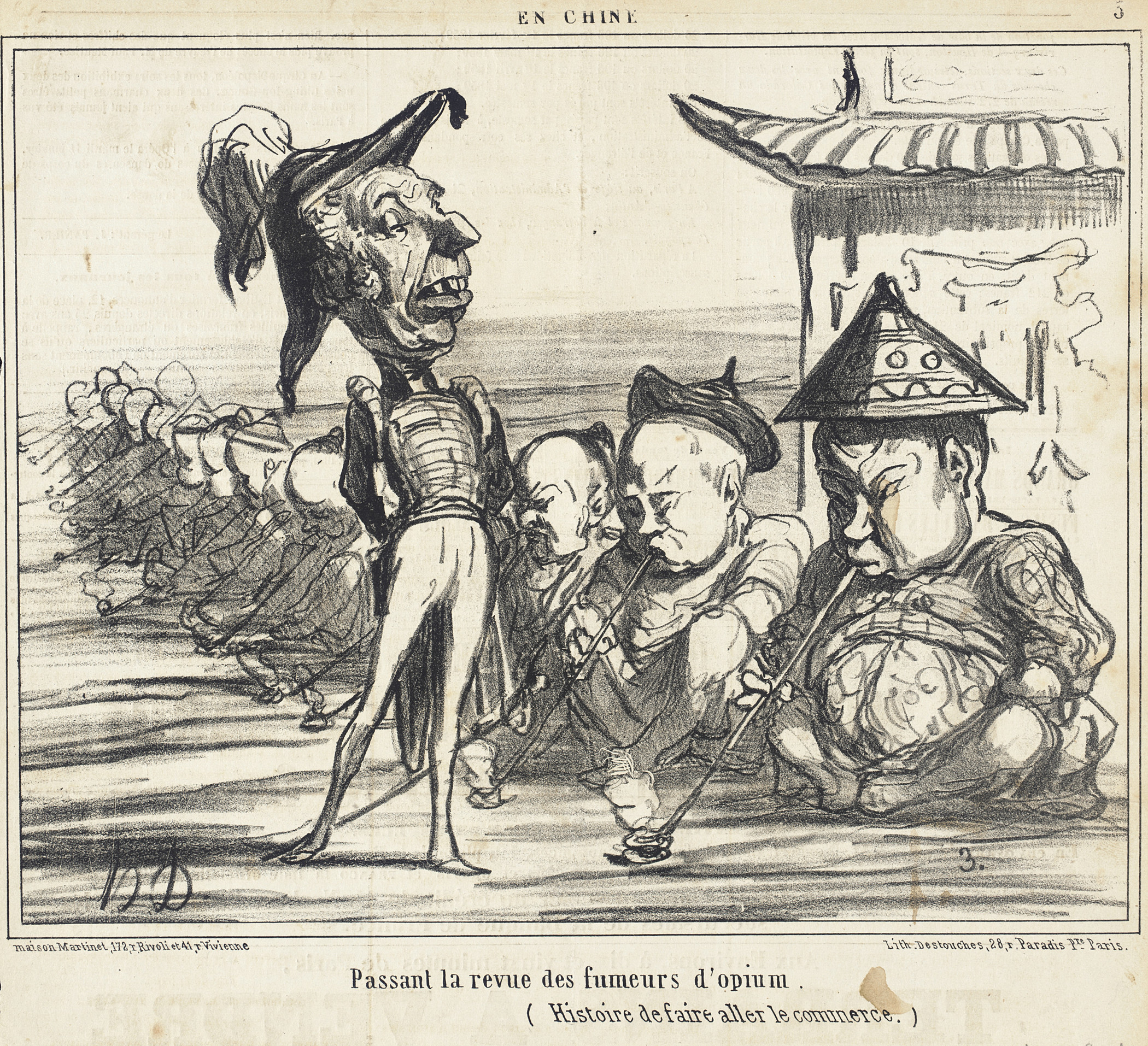By Marius Warholm Haugen
In 1843, Karl Marx wrote about religion, that it is “the sigh of the oppressed creature, the heart of a heartless world, just as it is the spirit of spiritless conditions. It is the opium of the people”.1 The opium metaphor is undoubtedly one of the most famous phrases of the German thinker, seemingly referring to the power of religion as a redemptive, but also illusory force, which can divert attention from the need for social change. Scholars disagree on the exact meaning of Marx’s original text, noting that the almost proverbial nature of the phrase as we understand it today depends much on Vladimir Lenin’s interpretation.2 What is less known, is the fact that the opium metaphor was, in Marx’s time, also used to describe the effects of another institution, namely the lottery.
On 11 June 1835, the French newspaper Le Figaro publishes an opinion piece discussing the abolition of the Royal lottery of France, due to take effect on 1 January 1836. The article is critical to the abolition, arguing instead for reform. It does, however, take issue with certain anti-abolitionist arguments, notably those that claim that the lottery brought a positive and consolatory illusion into the lives of the poor. “Away with such ideas”, the article declares, for “the player’s hopes are just a fatal as opium”. Just as “this poison”, it continues, these hopes “only give a short excitement of well-being” followed by a “long exhaustion and a poignant misery”.3 The use of the opium metaphor in this context presents the lottery institution as the producer of false hopes with detrimental effects, similar to those of the drug.
It is worth mentioning here that the effect of the “lottery opium” described by Le Figaro in 1835 has striking resemblances with what the British psychiatrist Robert Hunter referred to, somewhat tongue-in-cheek, as the “lottery stress disorder or LSD”. Writing to the British Medical Journal in April 1995, only a few months after the first, televised drawing of the British National lottery (described by James Raven in a previous post), Hunter describes a state of “anticipatory anxiety […] accompanied by unrealistic optimism and grandiose ideas” leading up to the drawing, only to be followed by a rapid deflation of mood and feelings of hopelessness”.4 The parallel with Le Figaro’s take on the lottery is interesting in two ways, because of the resemblance in the description of the “symptoms”, and because of the use of a culturally poignant drug metaphor, opium in 1835, LSD in 1995 (although the metaphor seems more humorously construed in Hunter’s case).

If we return to nineteenth-century France, we can observe that the use of the opium metaphor to describe the lottery was not unique to the article in Le Figaro. Four years prior, it had been used in La Comédie du Diable (1831), cowritten by the two novelists Honoré de Balzac and Frédéric Soulié. The text is a burlesque farce that stages a banquet set in hell, featuring numerous biblical and historical figures. Among the many dialogues in the text is a discussion between John Law, Thomas Hobbes, Jean-Jacques Rousseau, Louis XV, and Confucius, on the topic of the lottery. It is the proverbially voluptuous French king Louis XV, reputed for his love of gambling, who refers to the lottery as opium:
–Mais l’argent perdu a donné d’immenses jouissances ; un billet de loterie, n’est-ce pas de l’opium ? –La perte est un réveil.
[– But the money lost gave immense pleasures; a lottery ticket, is it not opium? – The loss is an awakening.]5
The metaphor is much more ambiguous here, at least when read from the perspective of the character. It suggests that the lottery provides pleasure even for those who don’t win, insofar as they are able to enjoy the intoxicating effect of the hope of winning. However, it is the severe Confucius who gets the final word, and the infernal tribunal abolishes the lottery for all eternity.
What is interesting in our context is the clear ambivalence of the metaphor, as it is used in the contemporary representations of the lottery. As has been pointed out with regards to Marx’s use of the metaphor, the cultural perception of opium in the first half of the nineteenth century was much more diverse and less distinctly negative compared to what would later be the case. Opium was perceived both as an addictive and reality-distorting drug and as a medicine, making it, in Esther Oluffa Pedersen’s terms, “an ambivalent product […] that len[t] itself to metaphorical use by philosophers and writers during this period”.6
The great observer of contemporary France, Honoré de Balzac, would return to the opium metaphor to describe the lottery in his novel La Rabouilleuse [The Black Sheep] (1840/1843). The passage in question imbues the metaphor with much richness of meaning, amongst other things by connecting it to an imagery of magic:
Cette passion, si universellement condamnée, n’a jamais été étudiée. Personne n’y a vu l’opium de la misère. La loterie, la plus puissante fée du monde, ne développait-elle pas des espérances magiques ? […] Quelle est aujourd’hui la puissance sociale qui peut, pour quarante sous, vous rendre heureux pendant cinq jours et vous livrer idéalement tous les bonheurs de la civilisation ?
[This passion, so universally condemned, has never been studied. No one has seen in it the opium of poverty. The lottery, the world’s most powerful fairy, did she not develop magic hopes? […] What social force can today, for the sum of forty sous, make you happy for five days and deliver you all the joys of civilization in ideal form?]7
This passage clearly resonates with the article in Le Figaro, especially because of the opium metaphor and the reference to “magic hopes”. However, whereas both terms have a clearly negative signification in the newspaper article, they read with much greater ambiguity in Balzac’s novel, implying primarily that the lottery can alleviate the pains of poverty and create pleasurable hope. Any notion of opium as dulling is only implicit. Particularly interesting, moreover, is Balzac’s phrasing of the lottery as a “social force”, indicating that the lottery’s capacity to capture people’s imaginations had made an impact on the social fabric of early-nineteenth-century France.
Could this passage from Balzac have influenced Marx’s famous text on religion? The Italian socialist philosopher Antonio Gramsci asks the question in an article from 1949 entitled “Religion, the lottery, and the opium of misery”. If the use of the metaphor to describe religion was also present in earlier German philosophy,8 it is not unlikely that Marx, who was a great admirer of Balzac, may have found inspiration in The Black Sheep.9 Regardless of there being a direct influence or not, and despite the two authors representing distinct political positions, it is striking that Marx’s and Balzac’s uses of the metaphor have in common that they present the two phenomena – religion and the lottery – as highly ambivalent social forces that produce illusory bliss, but which are also capable of alleviating misery. In that sense, both constitute a pharmakon in the old Greek sense: simultaneously remedy and poison.
- Karl Marx, “Contribution to the critique of Hegel’s philosophy of law,” in Collected works : Vol. 3 : Marx and Engels : 1843-44(London: Lawrence & Wishart, 1975), 175. Emphasis in original. ↩︎
- Esther Oluffa Pedersen, “Religion is the Opium of the People: An Investigation into the Intellectual Context of Marx’s Critique of Religion,” History of Political Thought 36, no. 2 (2015): 355. ↩︎
- “La Loterie,” Le Figaro (Paris), le 11 juin 1835. My translation. ↩︎
- Robert Hunter, “Lottery Stress Disorder,” BMJ: British Medical Journal 310, no. 6983 (1995): 875. ↩︎
- Honoré de Balzac and Frédéric Soulié, “La Comédie du Diable,” in Œuvres diverses, ed. Pierre-Georges Castex et al., Bibliothèque de la Pléiade (Paris: Gallimard, 1996 [1831]), 1116. My translation. ↩︎
- Pedersen, “Religion is the Opium of the People,” 358–59. ↩︎
- Honoré de Balzac, La Rabouilleuse (Paris: Éditions Gallimard, 1972), 104. My translation. ↩︎
- See Pedersen, “Religion is the Opium of the People.” ↩︎
- Antonio Gramsci, “La religione, il lotto e l’oppio della miseria,” in Opere di Antonio Gramsci : 4 : Note sul Machiavelli, sulla politica e sulla stato moderno, ed. Antonio Gramsci (Firenze: Einaudi, 1949), 288–89. ↩︎

Marius Warholm Haugen
Marius Warholm Haugen is Professor of French Literature at NTNU. Specializing in eighteenth-century studies, he is particularly interested in transnational exchanges, circulation, and translation in and between Italian, French, and British literature. He will conduct research on the representation of the lottery fantasy in French print culture and its connections to Italy and Britain.
